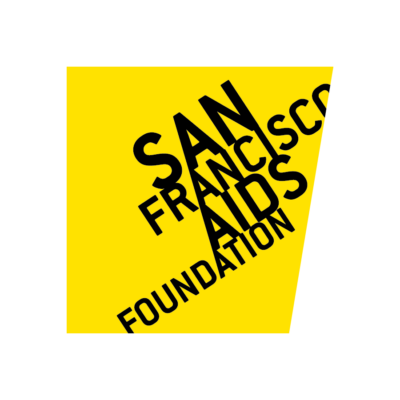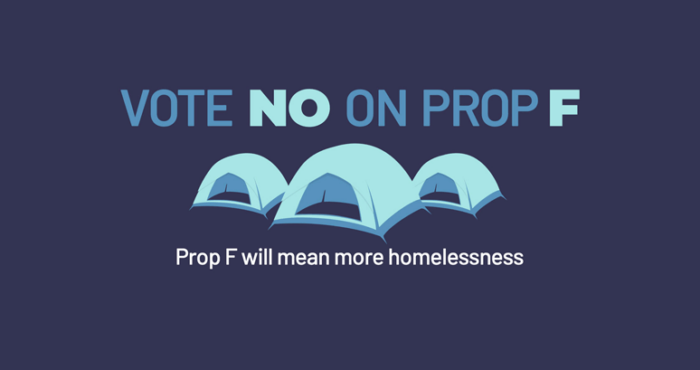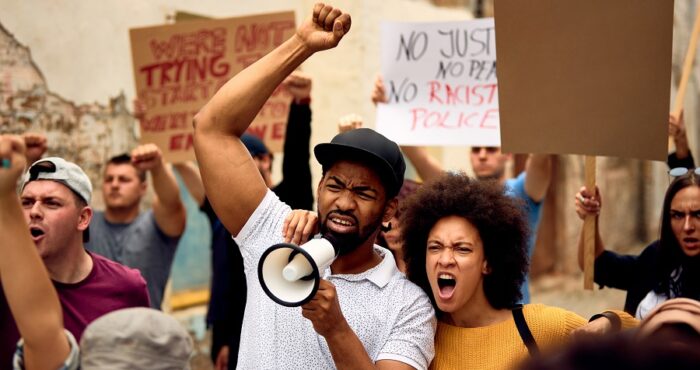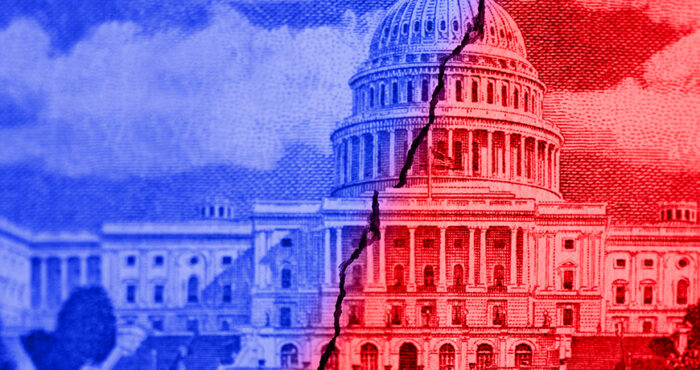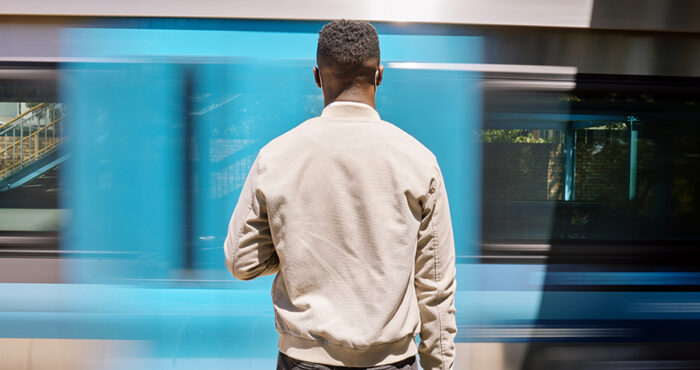“It’s about love”: Disability justice reframes access to focus on love and inclusion
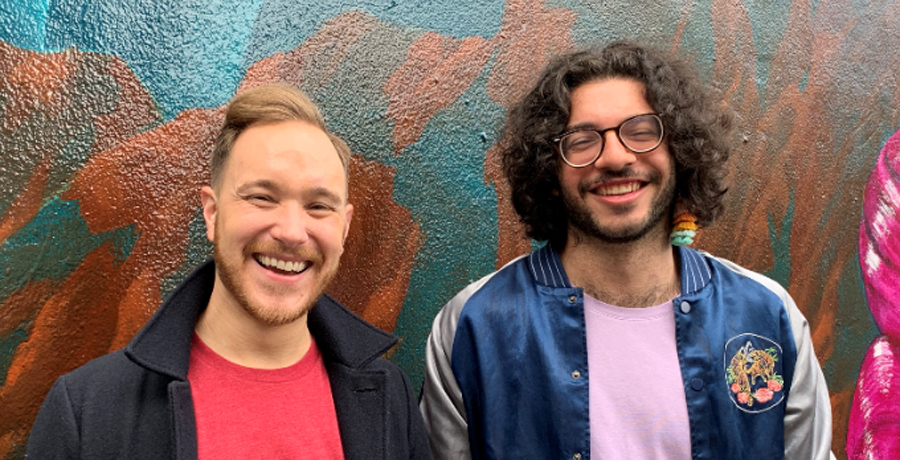
(Photo: SFAF staff Marc Silva, left, and Alex Locust, right. Image description: Two SFAF staff members face the camera, smiling)
Alex Locust, MS, APCC, CRC, a counselor with The Stonewall Project and Marc Silva, who manages community fundraising events at SFAF, are helping to flip the script on disability and access—reframing the issue of access from ADA compliance to one of love and inclusion. Here, they answer questions about disability justice, access at events, and why involving disabled people as leaders and change-makers is critical to our organization’s mission.
What is disability justice?
Alex Locust: Disability justice goes beyond accessibility of services. Certainly, that’s part of it—we want to make sure people can come to our events and services—but it’s also the intention of inclusion.
This framework calls us to revolutionize the way we create community spaces, particularly for Black, Brown, and Queer disabled folks. Part of that new vision is an effort to foster a culture of collective access, which is one where we normalize different access needs and as a community take on the responsibility of making spaces more accessible (rather than leaving it to individuals to make the environment work for them).
The wonderful “Access is Love” campaign, by the Disability Visibility Project, encapsulates this idea by sharing the message that including disabled folks is a sign of love and shouldn’t be a burden or afterthought. Disability justice is also about recognizing wholeness. We want to dismantle the idea that certain bodies are more worthy or valuable than others.
You can find more information about disability justice, in this commentary by Patty Berne and Sins Invalid.
How is disability justice tied to the work of SFAF?
Alex: Disability justice invites us to reflect on our intersecting identities within different settings. People living with HIV or AIDS can be disabled, for instance. As we work towards fighting stigma about HIV/AIDS through racial justice, gender equity and trans rights, we must consider how to approach our work from a disability justice lens as well. It’s imperative that we remember our community members are often within multiple marginalized groups, which compounds the support they need. How do we at SFAF use our power and privilege to create services that are responsive to those specific needs and how do empower those most marginalized to lead us in developing those programs?
Marc Silva: With our new strategic plan, we want to make sure our events align with our mission and values. Our events should be accessible and welcoming to any and all people who wish to participate—they shouldn’t explicitly or implicitly exclude—and they should be representative of all of the many people in our community.
You’ve both worked to change aspects of Santa Skivvies Run to make it more accessible. What are the changes you’ve made?
Marc: One of the first things we did was to create an alternate, flat route. The “run” doesn’t need to be a run since it’s not a race, so we wanted to make sure that people knew they could participate in a wheelchair, by walking or in any other way. We got rid of the “Slow Poke” award along with this change, and are working on changing the skivvies give-away to something that would work for people of all genders and bodies. The changes have been not only to the physical aspects of the event but also some of the less tangible aspects that can be inaccessible.
Alex: Disabled people have demonstrated leadership in community organizing countless times. By integrating accessibility into the framework of an event, we’re providing a platform for people with disabilities to contribute to the power of our advocacy efforts. I did Santa Skivvies on my rollerblade in 2017, working with Marc and other staff to make the event more accessible and to change the culture of the event. For the past two years, the Disabili-Team brought people who are disabled together with people who support and advocate for people with disabled bodies. It was an incredible show of creativity and really great way for us to come together and proudly and loudly say that disabled people and are powerful agents of change (raising nearly $25,000 in two years as the top fundraising team both times)!
Access is Love
Find ways to start creating access from Disability Intersectionality Summit. For more in-depth reading, check out the List of Readings and Resources.
Dining Out For Life San Francisco
It’s easy to participate in Dining Out For Life, another of SFAF’s community fundraising events, coming up on April 21, 2020. This annual fundraising event brings together more than 10,000 diners at over 80 restaurants who donate 25% of their day’s proceeds to San Francisco AIDS Foundation. We are happy to accommodate people with any accessibility needs as an ambassador or as a diner! More info & sign up:






